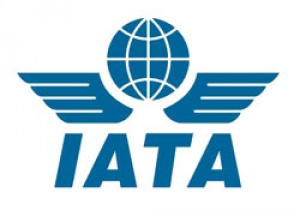Passenger demand growth compromised by high oil prices

The International Air Transport Association (IATA) announced global traffic results for March showing that total passenger demand rose 7.6% and freight demand climbed 0.3% compared to the same month last year.
Comparisons with March last year are affected by events that depressed passenger demand in 2011, including the Arab Spring, which disrupted travel in the Middle East and North Africa beginning in February 2011 and the earthquake and tsunami in Japan in March 2011 that impacted air travel across the Asia-Pacific region. IATA estimates that the year-on-year rise in air travel in March was about two percentage points higher than it would otherwise have been in the absence of these events.
Cargo demand, meanwhile, was affected by the timing of the Chinese New Year, which occurred in January this year—leading to stronger February shipments—but took place in February 2011—leading to stronger March 2011 shipments and weaker year-to-year comparisons. Compared to February 2012, March air cargo demand was significantly stronger by 2.2%.
“If we discount the industry’s growth by two percentage points as a result of the extraordinary events in 2011, airlines still managed an expansion in the range of 5-6%. Given the prevailing economic conditions with some European states returning to recession, passenger demand is holding up well. But this is bringing little relief to the bottom line because yields are not keeping pace with the continued very high price of oil,” said Tony Tyler, IATA’s Director General and CEO.
Oil prices have remained stubbornly above $100/barrel (Brent crude) for the past 14 months. In 2008, oil prices rose from $90/barrel in January to a peak of $147/barrel in late July. But by November, they had fallen back to less than $50/barrel. “We have not seen such sustained high oil prices previously. Jet fuel prices have risen 8% since January. Considering that fuel now accounts for 34% of average operating costs, it’s an increase that hurts,” said Tyler.
ADVERTISEMENT
Total passenger capacity rose 4.4% compared to March 2011, resulting in a load factor of 78.3%, up 2.4 percentage points over the year-ago period. Freight capacity, however, climbed 1.7% year-on-year, above the rate of demand, placing pressure on load factors.
Both Spain and the UK have slipped into a double dip recession in recent weeks. From April this year, the UK hiked its Air Passenger Duty (already the most expensive aviation tax in the world) by 8% which is double the inflation rate. Spain, with an economy highly dependent on tourism, is contemplating a 50% increase in charges at its two main airports (Barcelona and Madrid).
“The goose that lays the golden eggs can only take so many knocks before she fails to produce. Even in the best of times, increasing the cost of connectivity dents competitiveness. When the economy is weak it puts at risk aviation’s ability to create jobs and growth. And in a recession it is economic nonsense,” said Tyler.
Aviation supports 56.6 million jobs and $2.2 trillion of economic activity according to the latest figures from Oxford Economics.

